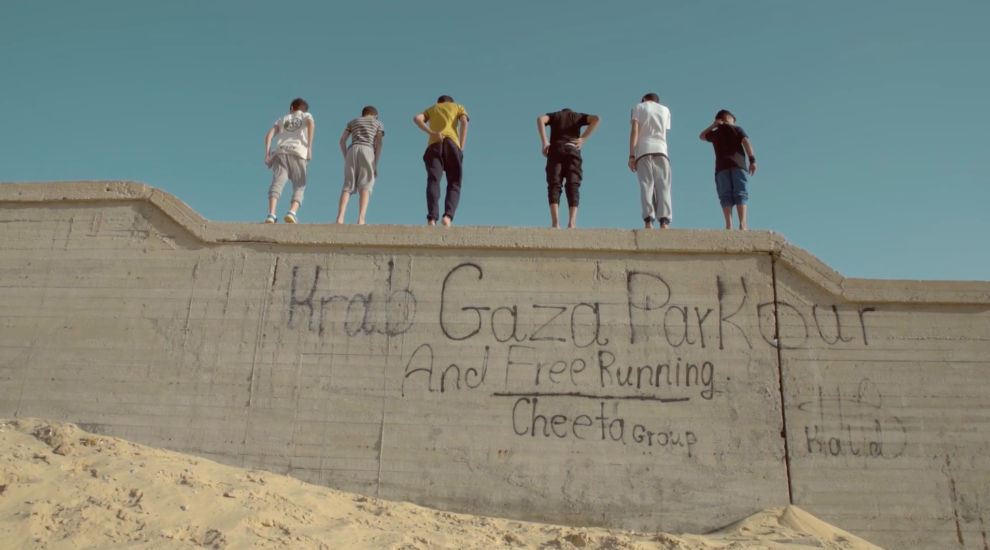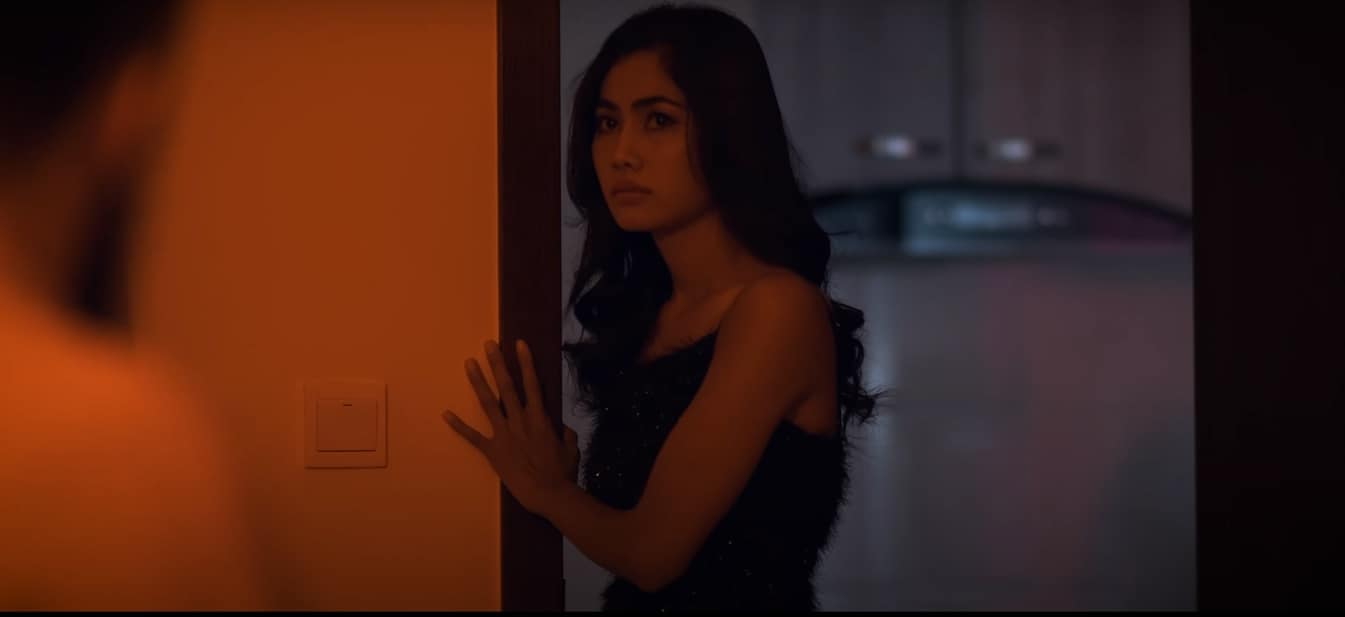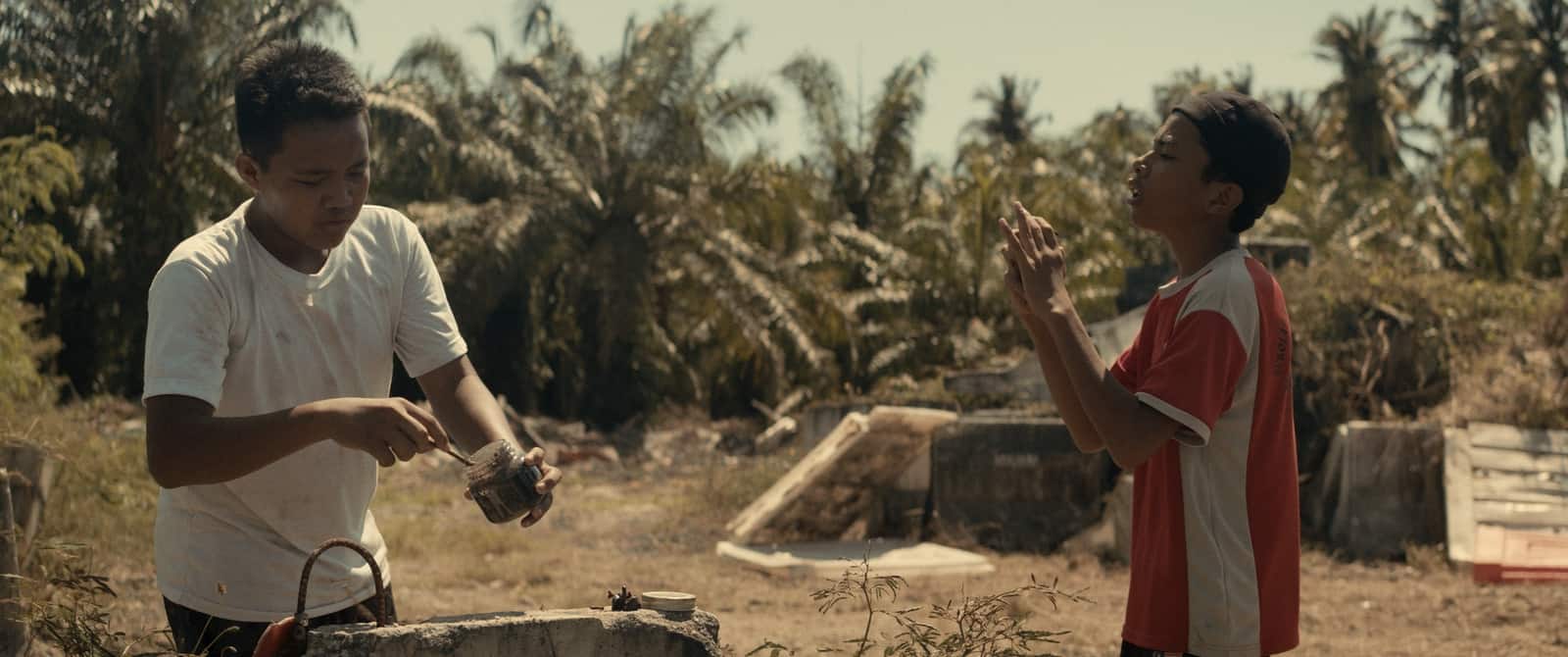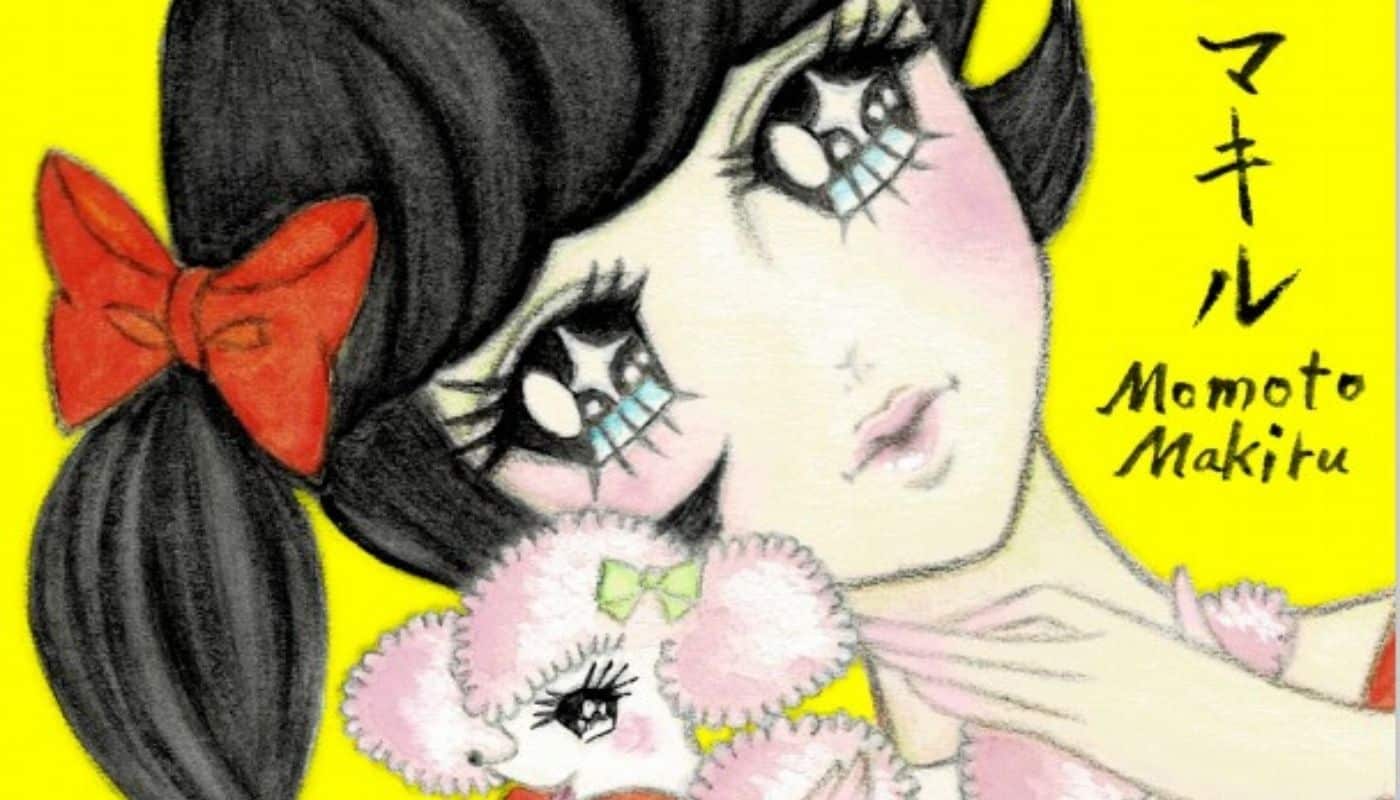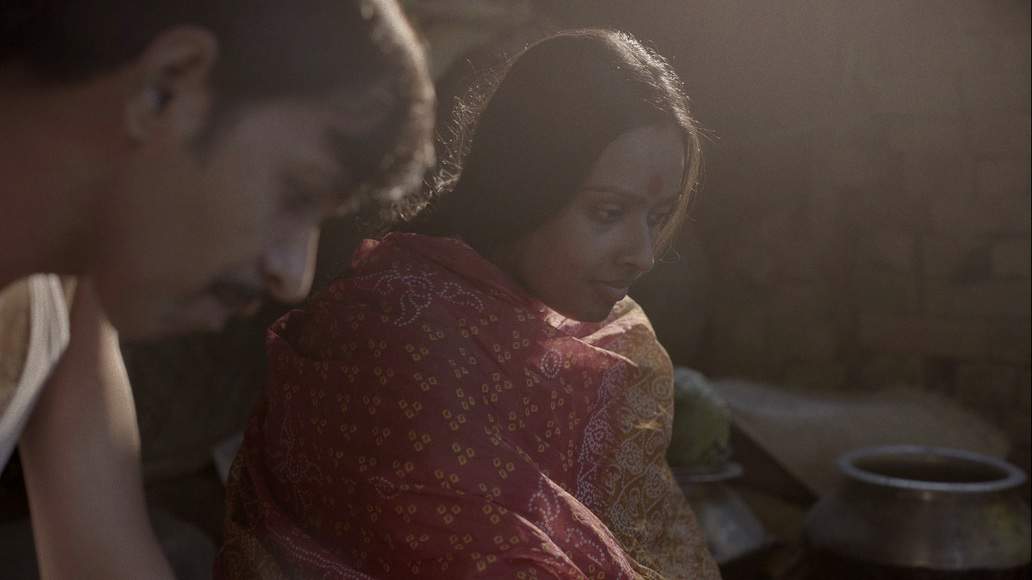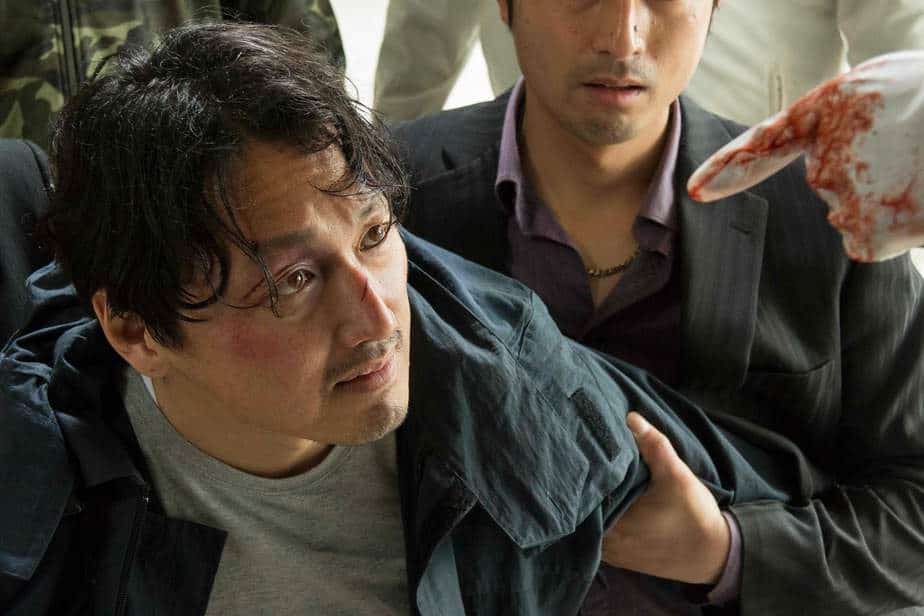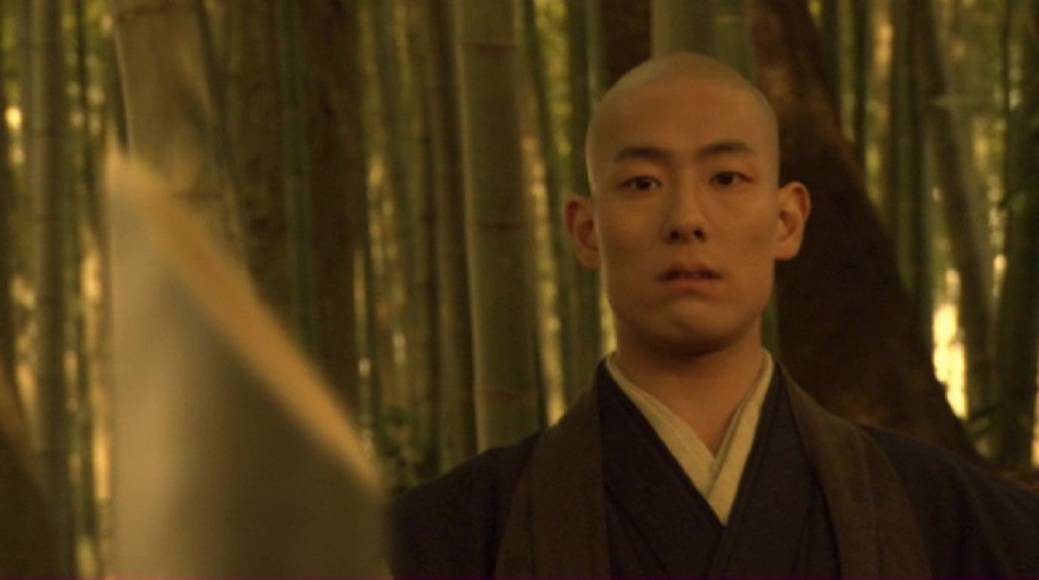Emanuela Gerosa's latest documentary “One More Jump” follows the day-to-day lives of two Palestinian parkour athletes. Jehad lives in Gaza, balancing his days between taking care of is incapacitated father, providing for his family, teaching parkour to a horde of Palestinian youngsters, and hoping for an escape to Europe. Abdallah, on the other hand, has managed to secure the coveted passport and an escape from the rubble-filled strip for Italy. Yet, financial difficulties and the impossibility of integrating into Italian society, make him long for home and harbor a wish that might never materialize – returning to his homeland. The only thing left for both of them is to run – from destruction and dereliction to a chimera either of them knows will possibly never materialize.
“One More Jump” is screening at London Palestine Film Festival
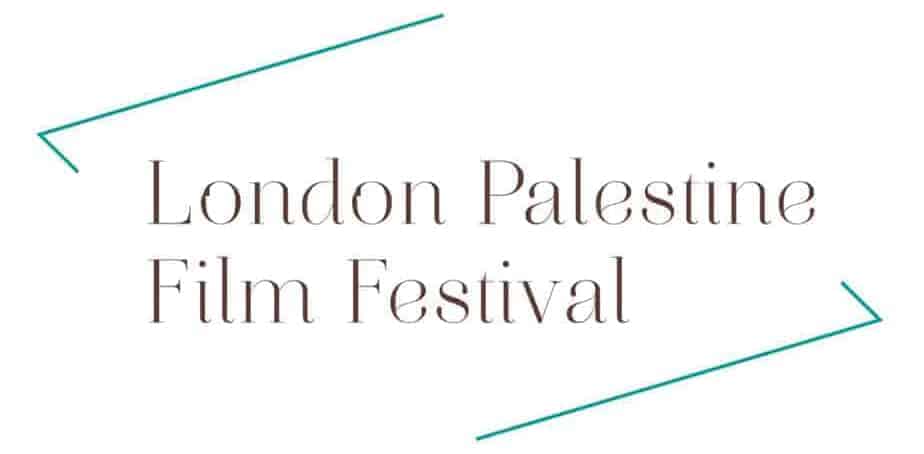
Though living in two very different places, there are more similarities between Jehad and Abdallah's realities than either of them suspects. Emanuele Gerosa manages to show that through drawing numerous parallels between his two subjects. Just like Jehad and everyone around him have learned to live with blackouts, in the same way Abdallah spends his nights in a cold and dark house in the middle of nowhere. Everything else in their lives, from the lack of job and future prospects, to the fact that they seem alive only when practicing parkour, is the same too. The only difference is that whereas Abdallah has realized the innate hopelessness and imprisonment of being a Palestinian, Jehad still harbors hopes for a brighter future in Europe. It is this lack of knowledge on the part of Jehad, who thinks that Abdallah abandoned him, that makes him feel anger and resentment towards his former friend.
The parallel presentation of the two subjects' lives shows one of the main observations of this film, namely the fact that Palestinians are never free. They are always imprisoned somewhere, be it in their own country from which some of them hope to escape but very few manage to do, or in a foreign land. For when they finally receive the coveted passport and allowance to leave the strip, they seem to be seldom allowed to go back home. For that reason, they seem to be in a perpetual state of liminality – at the same time free in a sense, but imprisoned, dreaming for foreign lands and longing for home they can never go back to. Always foreigners, as one of Abdallah's friends poignantly says.
This lack of belonging might be the reason why Jehad and Abdallah have chosen to dedicate their lives to free running. A coping mechanism both in the literal sense, for parkour might have helped them evade Israeli bombing, and the figurative one, the sport seems to be a very good metaphor for the existence of many young Palestinians. However, one of the problems of the film is that Gerosa never actually delves in any depth as to why the two men have actually chosen to practice this sport. This, together with the fact that some of the dialogue feels rather forced and simply for the sake of exposition and context, somewhat hinders the raw intensity of the subject matter.
Speaking about rawness, we should mention the brilliant cinematography by Matteo Delbo, who manages to shoot many of the freerunning scenes in a dynamic and intense manner that befits a skate or parkour video. There is a sense of speed and lightness to these scenes that completely lacks in most others, which are mostly presented through rather tight close-ups that allow neither the subjects nor the viewers to take a breath.
The beautiful presentation and serious subject matter make “One More Jump” a worthy watch for everyone interested in the reality of Palestine's youth. You should be warned, though, it is a rather bleak one.


